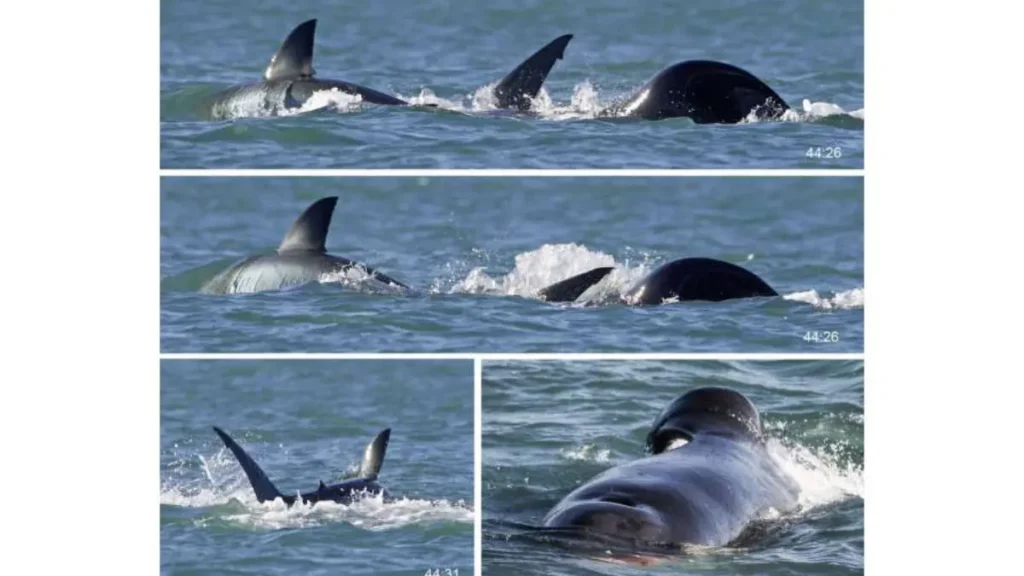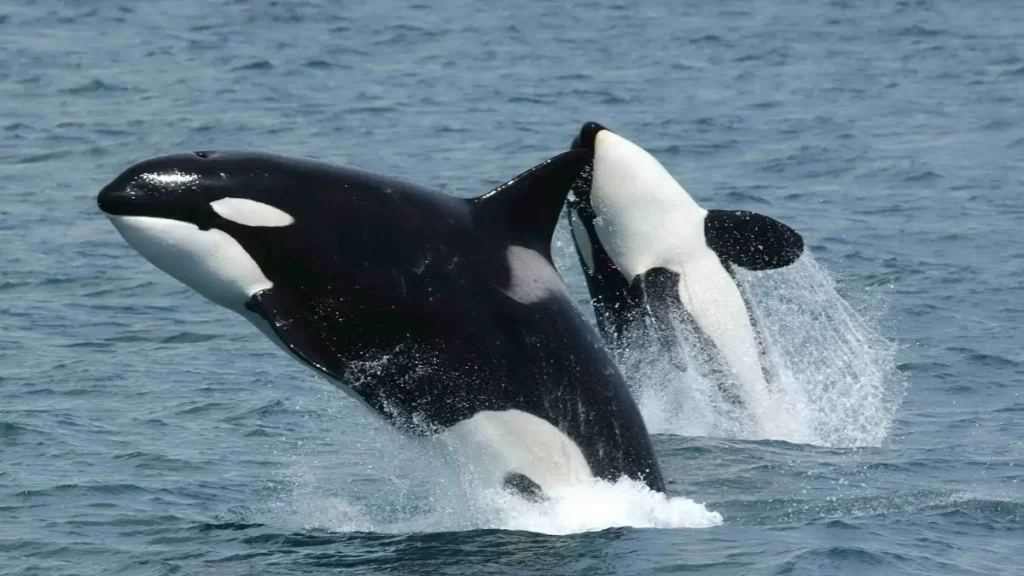For the first time, scientists watched in surprise as a lone orca, known as Starboard, killed a great white shark. This never-before-seen event happened in Mossel Bay, South Africa. Starboard ripped off the shark’s left pectoral fin, ending its life in less than two minutes, reported in African Journal of Marine Science.

People know killer whales, or orcas, for their social behavior and team hunting tactics, much like a wolf pack. But this is the first time anyone has recorded an orca killing a white shark all by itself. This quick kill by a single orca is unusual because orcas usually hunt in groups. They surround big prey and use their collective smarts and strength to attack.
A pair of orcas, known as Port and Starboard, are famous for hunting sharks together and eating their livers. Their modus operandi is unique – they kill the sharks, extract their nutrient-rich livers, and discard the rest. These livers are full of rich, oily lipids and can make up one third of a shark’s body mass in some species. This makes them a nutritious meal for the orcas.
Orcas seem to prefer the livers of great whites, which are about a third of their body mass and full of lipids. After eating the liver, the orcas throw away the rest of the body. Other meat-eaters, like harbor seals, brown bears, and wolves, also show this picky eating behavior.
This hunting behavior is pushing several shark species out of their habitats. A study from 2019 showed that white sharks run away when killer whales come close. This change in the marine ecosystem could cause a ripple effect. Changes to the white sharks in the region could affect other species and upset the balance of the coastal marine ecology.

The arrival of the killer whale pair and their unique hunting could connect to bigger changes in the ecosystem. Human actions, like climate change and industrial fishing, are putting pressure on our oceans. The shark-hunting killer whales might be part of these larger ecosystem changes.
Starboard’s quick and effective hunting strategy has caught the attention and worry of researchers. They’re asking how killer whales can open up white sharks and get to their livers. The extra hunting pressure from orcas could affect white shark numbers around South Africa.
These sharks are already at risk from overfishing and other human activities. The speed of the attack might show Starboard’s skill and efficiency as a hunter. This could be a reaction to the stress of hunting near shorelines where there are lots of humans.
The hunting of this lone orca could be a sign of a possible change in the ecosystem. It shows the constant changes in our marine ecosystems. As impressive as these predators are, the event shows the importance of ongoing research and conservation work to keep our oceans balanced.
The killer orcas are scaring away great white sharks, but researchers don’t know where the sharks are going. If they move to areas with a lot of commercial fishing, it could cause problems and more changes in the ecosystem.
The swift kill of a great white by a lone orca could signal an ecological shift in our oceans. It underscores the need for further research and understanding of these magnificent creatures and their impact on marine ecosystems.

